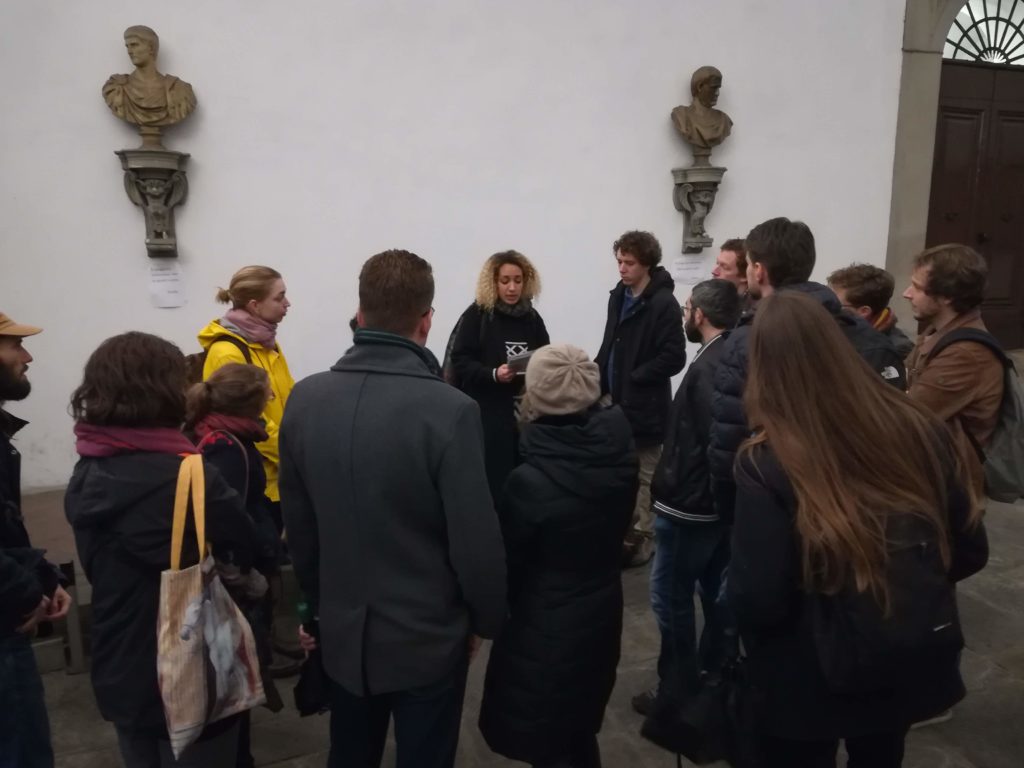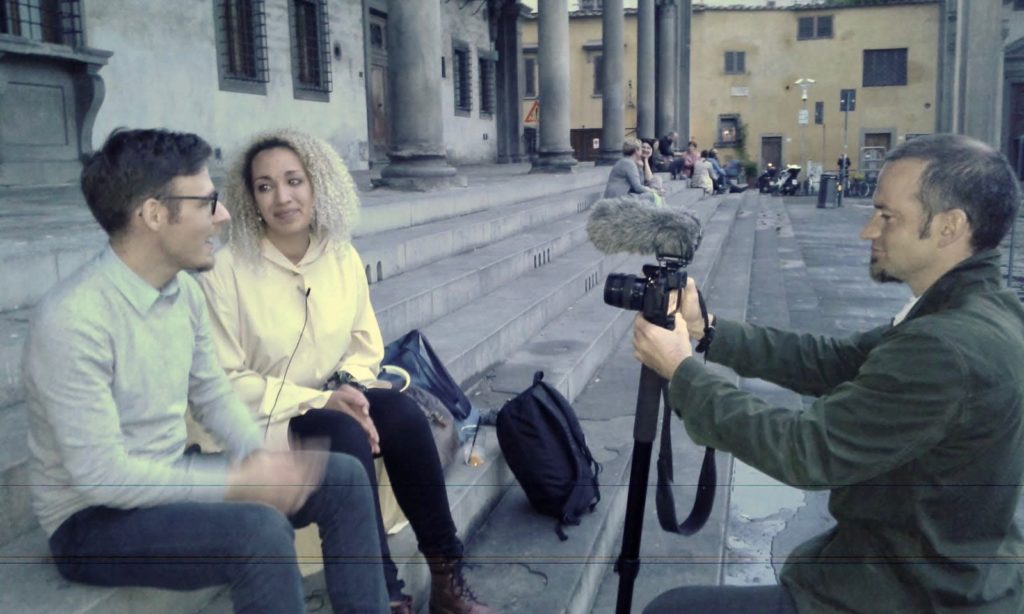The project
“Postcolonial Italy” is a collaborative project that falls into the field of digital public history. The project was launched in December 2018 in Florence by PhD researchers Markus Wurzer (University of Graz) and Daphné Budasz (European University Institute). It aims at capturing and documenting material traces that are visible in the public space and, thus, stimulating a public debate on Italy’s silenced colonial history. Although the Italian colonial empire had been relatively small and short-lived compared to others, today numerous material traces – street names, monuments, buildings etc. – can be found in Italian cities as well as in the former colonies.
This project was originally a single event: a guided tour organised for fellow researchers at the European University Institute in Florence. It soon became clear that the findings of this research would benefit to be shared. Indeed, the collection of colonial traces in Florence appeared to be very fruitful and the amount of sites grew to the extent they could not be included in a coherent route.

Memory walk “Uncovering Italian colonial past” in Florence
organized by Daphné Budasz et Markus Wurzer in December 2018.
This is how came the idea of marking physical locations on a digital map which would be available online and accessible to a large audience. In addition, these material places are not only geographically captured, but also – and this is crucial – historically contextualized. This map intends in fact to recall the manifold connections between inconspicuous places of the city and the colonial history of Italy, which often remains absent from collective memory.
By bringing to light the colonial in the public space and explaining why its traces are meaningful, over-flowing and persistent, “Postcolonial Italy” is both a research project and a public history enterprise. Through the collaboration with other scholars working on Italian colonialism, the project intends to grow online and incorporate colonial traces present in other Italian regions and in the former colonies.

Markus Wurzer and Daphné Budasz presenting the project